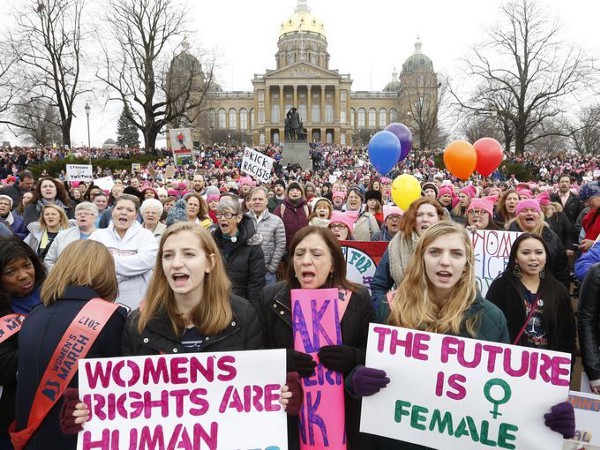
On Thursday, the Women’s March announced that Senator Bernie Sanders would be the Friday night speaker (opener? headliner?) at the Women’s Convention in a few weeks and Twitter exploded.
In the days since, news organizations have mischaracterized Sanders’ participation, everyone has had their own hot take, and the Women’s March and its leaders have defended and clarified and apologized.
The Women’s Convention bills itself as “a weekend of workshops, strategy sessions, inspiring forums and intersectional movement building” as we gear up to the 2018 midterm elections. Where the Women’s March in January was an emotional gathering, the convention positions itself as leadership training and strategizing.
I was excited when the convention was announced. If October 27–29 wasn’t one of my only free weekends since the end of August, I likely would have crunched numbers, pinched my pennies, and tried to go. I love learning from other women. It’s part of why I joined a sorority and remained active as an alumna after graduating. It’s part of why I brag about how in my professional career, I have only ever worked for majority-women companies with women founders and CEOs. And it’s part of why I was so disappointed when I saw the Sanders announcement.
Let’s revisit some statistics. In the history of the United States, there have been 51 woman senators; 21 of those are serving right now. There are 84 women currently serving in the House of Representatives and 279 women have been elected or appointed total. Six (ONLY SIX) states have governors who are women. It was discouraging to learn that instead of amplifying the voice of and learning from one of these women, it would be Senator Sanders who would take the stage, a progressive and organizer, but also a man who has, at best, shrugged off women’s issues.
Women face daunting odds in any area traditionally dominated by men, and so we make our own spaces. We found our own companies, create our own organizations, plan our own protests. We learn from those who came before us, share with our peers, and pass on what we’ve learned to the women coming up behind us.
And yes, sometimes our mentors are men who recognize the mountain women climb and who share their advice as we try to creep ever closer to equal footing.
But more often, from classrooms to boardrooms, men dominate the conversation. Their suggestions are given more time, even when it’s the exact same idea from his woman colleague. And when women and men share speaking time evenly, women are perceived as speaking more.
It’s worth asking why the announcement of Senator Sanders got such widespread mainstream coverage, when many other speaker announcements, including that of Representative Maxine Waters, did not. But it’s also worth asking why the prominent opening night speaking spot at the Women’s Convention was given to a man. I’m not calling for men to be excluded from the conversation and the Convention entirely. I am however, saying we should all acknowledge that women’s voices have been excluded for much of history and that the Women’s Convention should be one place we shouldn’t have to worry about being preempted.
In this time when it feels as if women are facing attacks from every direction, we should expect to be featured in the spaces we have created. This is a convention that grew out of the largest single-day protest in history. We spread the word and planned and created and dragged our friends out on a cold January day and met new friends as we stood in streets and came out in the hundreds of thousands across the world. There are plenty of women who are ready and eager to do more, to take on leadership roles, and to keep the fight alive. A woman should have spoken in this slot.